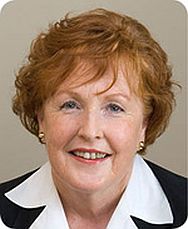Toowoomba Regional Council will begin its dispersal program of the flying fox colony at Woolmer Road, Highfields on March 11 and Environmental Health and Parks spokesperson Cr Sue Englart said this may lead to the possibility of increased interaction between residents and flying foxes in the short term.

“There are a range of unknowns in this project,†Cr Englart said. “One of which is we do not know where the relocated bats will go. We’ve got some really good habitat within close proximity. There are known colonies in Redwood Park and the former rifle range site and both of these are within 15kms of the Highfields roost … we are hoping this will be a smooth transition, but you can never be sure.â€Â
Cr Englart said Council is using non-lethal methods to move the flying foxes from near homes. “Flying foxes play an under-valued, but critical role in forest regeneration, pollination and seed dispersal which has been found to promote the resilience of native ecosystems to environmental change,†she said. “We hope they will relocate within the shire to a more suitable location”.
“The non-letahl metods will include loud noise and smoke and will take place in the very early morning (when flying foxes return to the roosts from foraging) and in the evening just before they fly-out.â€Â
Toowoomba Regional Council is urging residents to be cautious if they come into contact with flying foxes. Cr Englart said displaced flying foxes may sleep in back yard trees across Highfields for a limited number of days, but are likely to move on after a short period of time. “If this is the case we urge residents to leave them alone as they need to rest to be able to fly off again in the evening, and please be careful as flying foxes and fruit bats may carry Australian bat lyssavirus which can be fatal to humans.
“Less than one per cent of flying foxes carry the disease and you would have to get up close to be scratched so just avoid them and you won’t have a problem,†she said. “The best protection is to avoid handling any bat or flying fox.â€Â Cr Englart said injured or sick flying foxes should be reported to the RSPCA on 1300 ANIMAL (1300 264 625). Any other enquiries about the program can be referred to Council on 131 TRC (872).
Submitted by:
Chris Leslight
Stakeholder Engagement & Communication
Toowoomba Regional Council